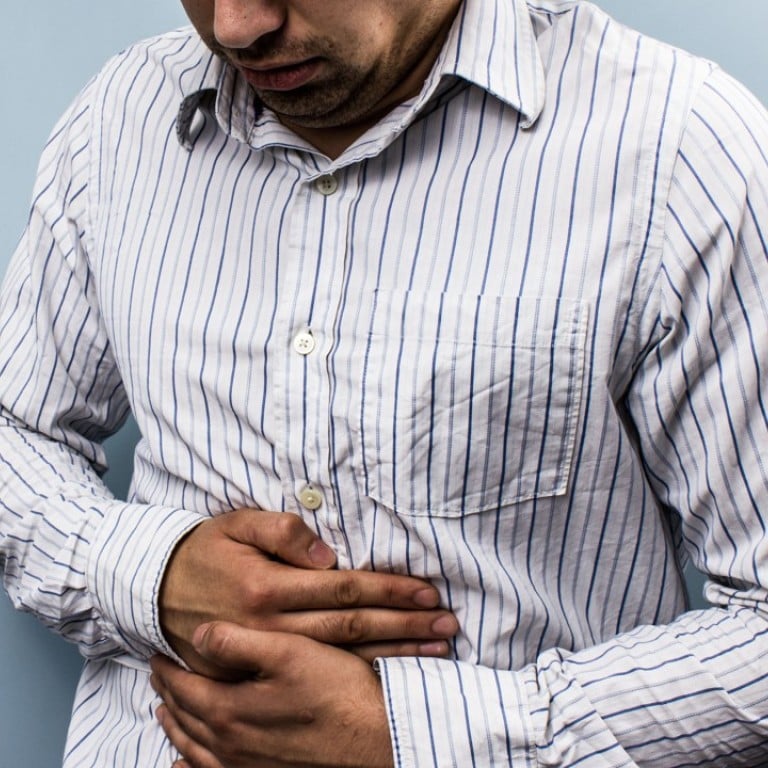
Why constipation happens and tips on relief, from what to eat and drink to staying on the move
There are few things more frustrating than not being able to go when you really need to go. We spoke to a doctor, a dietitian and a nutritionist on the causes of constipation and the best ways to stay regular
Despite the modern-day scourge of too much fast food, constipation is by no means a contemporary affliction. It has dogged humanity for centuries.
It was described on Egyptian papyrus texts, with relief prescribed in the form of castor oil, aloe and senna. The Greeks advised on various means to evacuate the intestine, including a large square-shaped syringe to perform enemas.
Hong Kong ranks third for new cases of bowel disease, behind South Korea and Guangzhou, say CUHK researchers
In the 16th and 17th centuries, sufferers dealt with the problem by swallowing capsules of antimony, a metallic chemical. These irritated the gut as they passed through the intestine, acting as a purgative. They could also – both helpfully and economically – be fished out of the chamber pot, washed and reused, giving them the name Perpetual Pills.
These pills were treated as family heirlooms; after quite literally passing through one generation, they were passed on to the next. And they could pass through generations speedily – antimony is toxic (it is believed Mozart died as a result of his habit of drinking a hangover cure containing antimony).
While many of the roots of constipation remain unchanged today, the cures prescribed, thankfully, are much more safe and efficient.

Dr Paul Ng, a specialist in gastroenterology and hepatology, believes that up to a quarter of Hong Kong’s population suffers from chronic constipation. He says it is generally because of a combination of poor diet containing too few whole foods, a hot climate which reduces body water volume, and stressful but sedentary lifestyles.
He explains that temporary constipation happens when the colon absorbs excess water from the material that passes through it – a mixture of gases, water and solids, sloughed-off gut-lining cells, and bacteria – while propelling it towards the exit. It usually does this because of inadequate intake of dietary fibre and water. The result: waste products struggle to make their way out.

Long-term constipation is more complicated. Sometimes there is just no urge to go even when the system is full: the colon may slow down or stop moving, or the muscles that hold everything in fail to relax when a person “strains down”.
“All these can be the result of inadequate rest, stress or mood problems,” Ng says. “Collectively, they are called functional constipation.” He adds that when there is excessive pain associated with this problem, it is called constipatory irritable bowel syndrome.
There are less common causes of constipation, too. Dietitian Denise Fair says these include hypothyroidism (an underactive thyroid), Parkinson’s disease and multiple sclerosis. Other diseases that decrease movement through the intestines can also add to the problem, as can certain prescribed medications.
A good sign of bowel health is to have one good bowel movement a day
There are several ways to get things moving normally again. One of the easiest and quickest is to drink more water. This is often surprisingly overlooked, says registered nutritionist Michelle Lau, founder of Hong Kong consultancy company Nutrilicious. She recommends drinking water at every meal, throughout the day, and while in transit to and from work, school or other activities. In all, she says you should drink at least two litres of water a day.
Additionally, a diet rich in fresh fruit and vegetables is important to ensure good fibre intake. Fair explains that both contain insoluble fibre (which is indigestible and adds roughage and bulk to stools) and soluble fibres (which bind to water, making stools softer and easier to pass).
Lau says you should eat at least 25 grams of fibre a day and recommends blackberries, banana, apples, broccoli, carrots, Brussels sprouts, and whole and unprocessed whole grains (things like brown rice, quinoa, oats and millet).

Ng says it is important to keep moving “to promote gut motility”. Being physically active, in whatever way you prefer, helps waste pass through the intestines.
Delaying bowel movements due to work engagements or changes in daily routine can make constipation worse, Lau says. This can be caused by something as simple as not being at home to use your own toilet. Thirty-two-year-old Terra knows that feeling well: “I’ve suffered [from constipation] since I was a teenager. It’s worse when I can’t use the toilet at home, when I’m on a trip, say.” In other words, when you’ve got to go, you’ve got to go.
Grumpy and stressed people are somewhat more prone to having constipation
But how regularly should we “go”? This depends on many factors, Fair says. “It can range from once every other day to two or three times a day, depending on the individual. But a good sign of bowel health is to have one good bowel movement a day.”
It is not always easy to know if you are constipated, however. Ng says that as a general guide, “a bowel habit that’s incomplete, prolonged, painful and requires excessive straining can be described as constipation.”
Fair says that the average “transit time” for food entering and leaving our bodies should be 24 to 48 hours. To test yours, avoid eating corn for a few days, then have corn in a meal and see how long it takes to pass.
Lau says the defining characteristic is not how frequently you go, “but the passage of hard, dry stools, often with pain and considerable effort”.
Why Hong Kong researchers are studying poo’s potential to save lives
That discomfort is bound to affect a person’s general demeanour. “Being constipated can make a person feel very uncomfortable, which can affect mood,” Fair says. “People who have chronic constipation often develop some anxiety over it, as it is painful to have a bowel movement and often leads to haemorrhoids.”
Ng believes, though, that it is a somewhat reciprocal situation. While constipation can certainly make people feel uncomfortable and stressed, “grumpy and stressed people are somewhat more prone to having constipation”.
Want to stay regular? Here are some more tips:
Cut down on meat. Meat is harder to digest than other foods and slows the digestive process. The longer food stays in the intestine, the more water is taken away, making it harder to pass.
Take a fibre supplement. Both Fair and Lau advocate psyllium husk as it has some of the best evidence to support its use in constipation relief, and stimulates the growth of beneficial gut microbes.
Don’t skip meals. “Eating regularly induces the gastrocolic reflex by stimulating intestinal movements that may relieve constipation,” Lau says.
Four simple and effective ways to reduce colorectal cancer risk
Lift your feet. Constipation sufferer Terra uses a stool to elevate her feet while sitting on the toilet. This raises her knees and helps to reposition the colon for more effective bowel movements. The principle is based on the fact we were designed to squat to empty our bowels, not sit.

